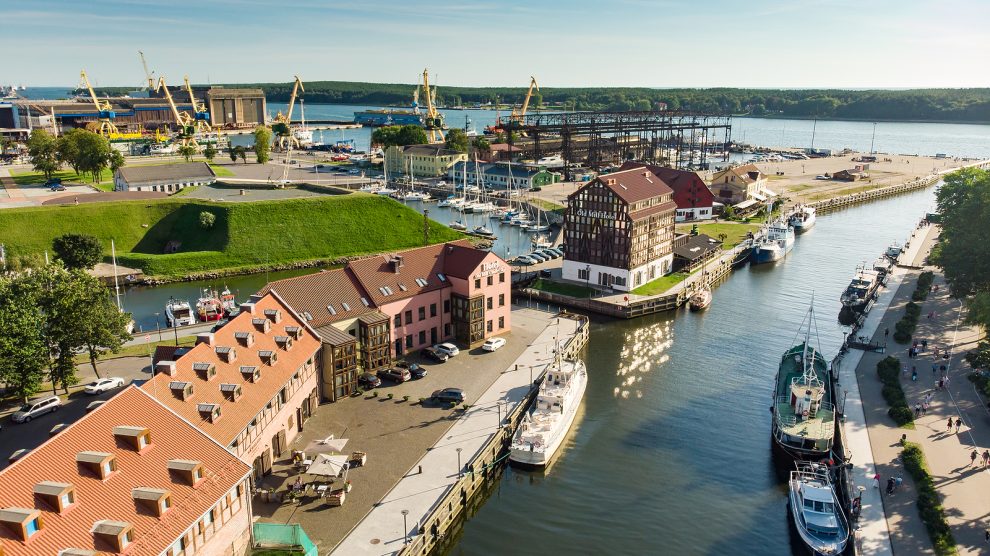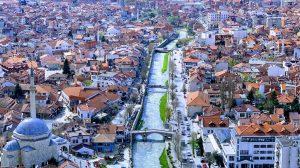People and organisations working at sea understand the importance of collaboration.
This past week, I joined Klaipėda Manifesto, a conference discussing how to foster innovation and collaboration in the blue economy. My focus was collaboration that leads to innovation in the emerging Europe region.
Having encouraged stakeholders in emerging Europe to work together for years, I was excited to hear some of the case studies presented before our panel discussion.
- Vilnius named emerging Europe’s most business-friendly city
- Why Lithuania and Czechia are pursuing closer ties with Taiwan
- 48 hours in Klaipeda: Lithuania’s Baltic Capital
And I even jotted down some benefits of collaboration that I heard: “We make things look bigger than they are”; “To get a competitive advantage when you collaborate with others”; “Collaboration is inevitable if you want to stay alive”; “You can never achieve so much on your own”.
However, I am also realistic that it’s not always that smooth and easy. It hardly ever is. Organisations, both public and private, more often than not follow their goals without coordinating with other entities that work towards the same or similar objectives.
Working in silos
I shared our own experiences. The case of the Directorate of Free Economic Zones in North Macedonia, which in 2018 reached out to us to say the country’s national investment promotion agency (IPA) wasn’t the entity that was responsible for attracting foreign investment and therefore shouldn’t be included in Emerging Europe’s Investment Promotion Report.
Or just a few months ago, the efforts leading towards showcasing Ukraine’s tech at London Tech Week would have brought even better results had the organisations involved seen the common goal, not their individual interests. I was trying to coordinate these efforts and it was not easy to encourage them to work together.
My fellow panellists shared similar thoughts.
Erik Bertholet, business manager offshore wind at Groningen Seaports in Eemshaven, the Netherlands, recalled a Baltic delegation visiting his port about a year ago. He asked them what they were working on at the time and the project they were focused on only involved Latvia and Estonia.
“I asked them how this was possible because, even in our discussions today [at the conference] we have concluded that Klaipėda is very well positioned in the Baltic Sea,” he added.
“We are bribing companies to collaborate [just like] you are bribing your kids with sweets to do something unpleasant. We are motivating or bribing companies to cooperate which doesn’t happen naturally. There are more and more financial grants that are addressed to clusters, and associations, for example, promoting exports. You can’t get a grant and go abroad and represent yourself unless you find at least four friends from the same industry. And for Lithuanians, it is not easy, I think it’s deep in our culture,” said Romualda Stragienė, director of Innovation Agency Lithuania.
“In Estonia, it’s even worse. The further north you go the more individual people are. And the bribing issue is also high on the agenda,” Riina Palu, CEO and lead consultant at Saaresalu, a Tallinn-based consultancy helping the maritime industry to digitalise, innovate and be sustainable.
“If they cooperated, they would have done better. Without that cooperation, they would just do okay. This is why the bribe is on the table, because we need them to do better. They themselves, as private actors, say ‘we’re fine, don’t push us.’ We would cooperate more if our survival was dependent on that,” she added.
Alone at sea?
Of course, trust—and establishing and maintaining that trust—are a major challenge when building partnerships and the panellists agreed that they are all about building relationships between people and here socialising or perhaps playing sport very often work.
“Trust cannot be preprogrammed or done artificially,” Darius Daunys, vice-rector for science and innovations at Klaipėda University, said.
It can be promoted and encouraged through leadership. It can also sometimes come naturally when the actors are facing the same or similar challenges. And the Baltic Sea can be a source of these common challenges.
“We are a marine-oriented university, and we have more collaborations on a regional scale than on the national scale. Talking about marine issues in Lithuania is talking only with a handful of people. We have much tighter links with the regional actors,” he added.
“When you are out at sea you widen your perspective. The ocean connects nations, people and coasts. This mindset in the maritime industry is completely necessary,” said Andrius Sutnikas, coordinator at the Lithuanian Maritime Cluster.
“And cooperation is only possible in a win-win situation. Otherwise, it’s a short-term business,” Daunys said.
It seems that people and organisations working at sea understand that and throughout the conference, I saw multiple examples of partnerships and collaborations in the industry in Klaipėda, which makes me see the city and Lithuania as a whole as a place where blue economy has a high chance of developing.
If they wanted to develop further, I would follow Stragienė’s advice.
“If you are so good in your industry and your horizontal relations, you should look at other areas and industries because only then big things happen. [So, it’s about] stealing great ideas from outside your bubble, from other industries [and implementing them in your industry]. [This is about] disruptive innovation.”
Unlike many news and information platforms, Emerging Europe is free to read, and always will be. There is no paywall here. We are independent, not affiliated with nor representing any political party or business organisation. We want the very best for emerging Europe, nothing more, nothing less. Your support will help us continue to spread the word about this amazing region.
You can contribute here. Thank you.







Add Comment